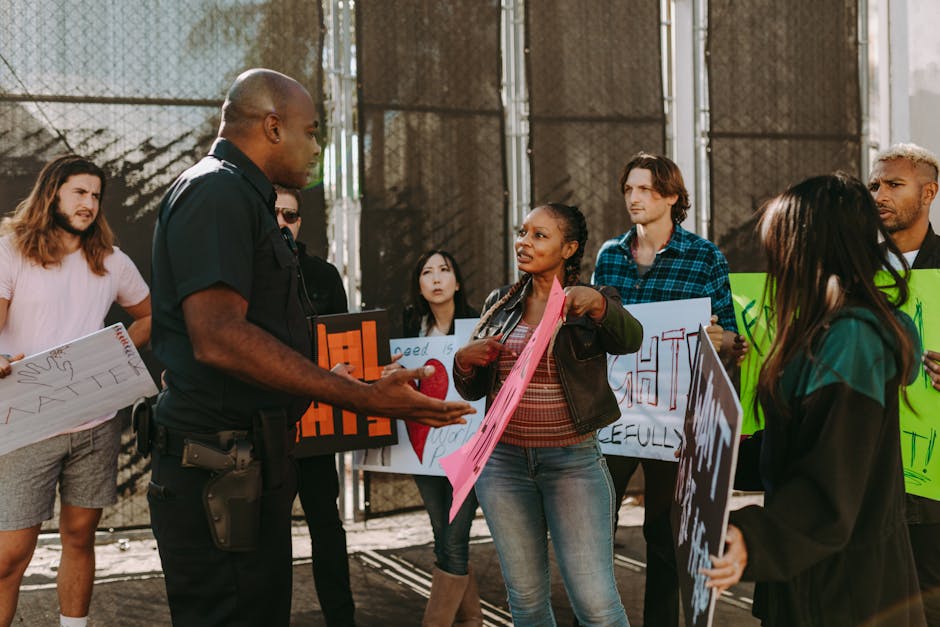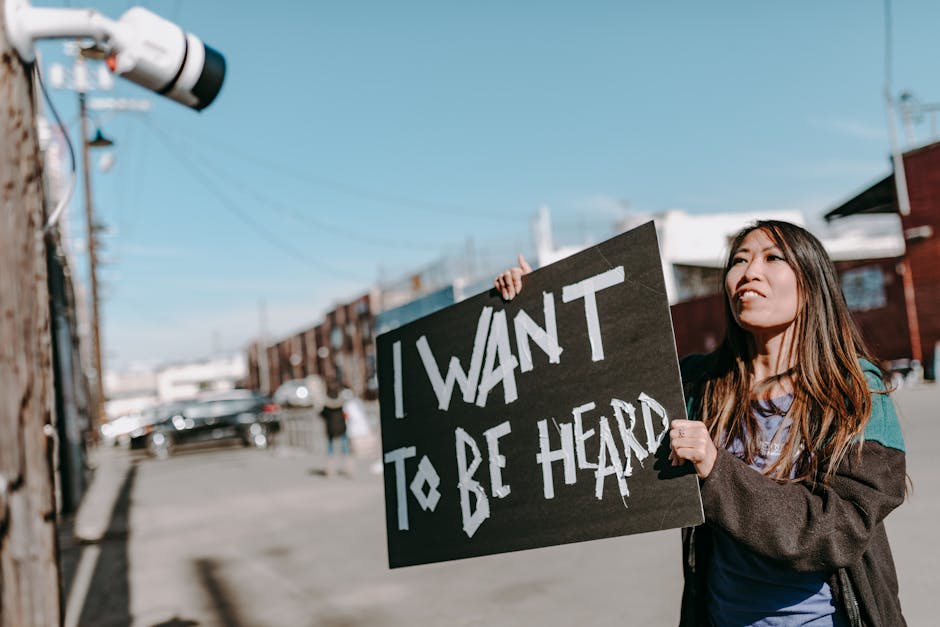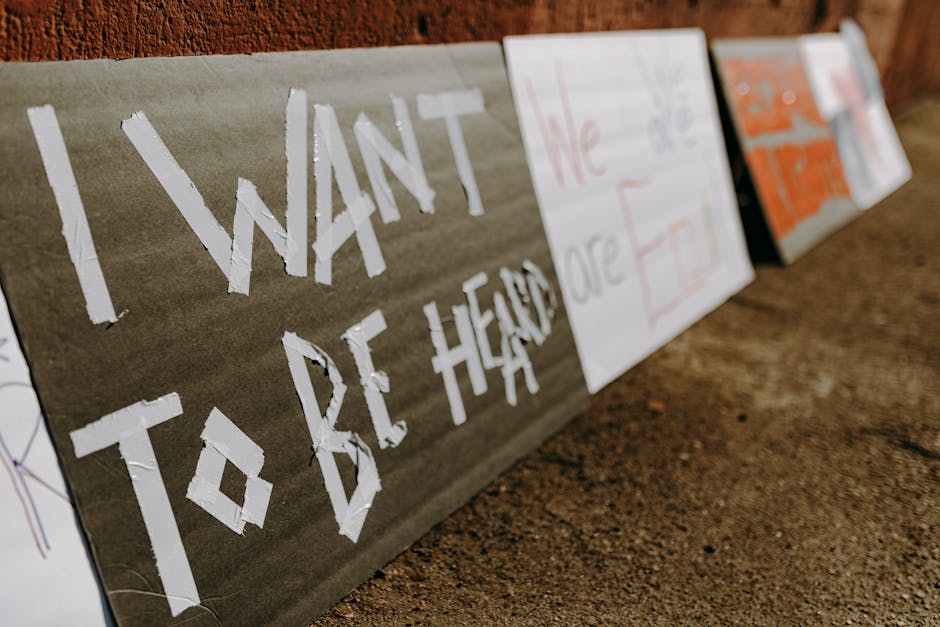Social Justice News: Navigating the Intersection of Equality and Advocacy
In today’s fast-paced world, staying informed about social justice issues is more crucial than ever. From racial equality and gender rights to environmental justice and economic disparity, social justice news covers a broad spectrum of topics that impact individuals and communities worldwide. But what exactly does social justice news entail, and why is it so important? Let’s delve into the depths of this complex and compelling subject to gain a deeper understanding of its significance.
The Evolution of Social Justice News

Over the years, social justice news has evolved from a niche interest to a mainstream concern. With the rise of social media and digital technology, information about social justice issues spreads faster and reaches a broader audience than ever before. From viral hashtags to online petitions, social justice movements have gained momentum and visibility, sparking conversations and inspiring action on a global scale.
However, the roots of social justice news can be traced back to early advocacy efforts and civil rights movements. Historical figures like Martin Luther King Jr., Rosa Parks, and Susan B. Anthony paved the way for modern-day activists to fight for equality and justice. Their legacy continues to inspire a new generation of changemakers to address systemic inequalities and advocate for marginalized communities.
As social justice news continues to shape public discourse and influence policy decisions, it’s essential to stay informed and engaged with the latest developments. By understanding the history and evolution of social justice movements, we can better appreciate the challenges and opportunities that lie ahead in the pursuit of a more just and equitable society.
The Impact of Social Justice News on Marginalized Communities

One of the key aspects of social justice news is its impact on marginalized communities. By shedding light on issues of systemic discrimination and inequality, social justice news plays a vital role in amplifying the voices of those who have been historically silenced or overlooked. From Black Lives Matter to the #MeToo movement, social justice news has empowered individuals to speak out against injustice and demand accountability from those in power.
For marginalized communities, social justice news serves as a platform for advocacy, education, and solidarity. By sharing stories of resilience and resistance, social justice news highlights the experiences of those who have been marginalized based on their race, gender, sexuality, or socioeconomic status. Through thoughtful analysis and in-depth reporting, social justice news helps to raise awareness and foster empathy for individuals who face discrimination and oppression on a daily basis.
Moreover, social justice news can drive meaningful change by holding institutions and decision-makers accountable for their actions. By exposing corruption, inequity, and injustice, social justice news challenges the status quo and pushes for reforms that promote equality and justice for all. From legislative victories to corporate accountability measures, social justice news has the power to shape public opinion and mobilize communities to take action against discrimination and prejudice.
Challenges and Controversies in Social Justice News

Despite its positive impact, social justice news is not without its challenges and controversies. As the media landscape becomes increasingly polarized and sensationalized, social justice news can be distorted or sensationalized to fit a particular narrative or agenda. In some cases, misinformation and disinformation can spread rapidly, leading to confusion and division within communities.
Additionally, the intersectionality of social justice issues can complicate the reporting and interpretation of news stories. For example, issues related to race, class, gender, and sexuality are interconnected and often intersect in complex ways. As a result, social justice news must be approached with nuance and sensitivity to avoid perpetuating harmful stereotypes or marginalizing certain groups within society.
Furthermore, the commodification of social justice news can raise ethical concerns about the exploitation of marginalized communities for profit or publicity. When activism becomes a trend or a marketing tool, the integrity and authenticity of social justice movements can be called into question. It is essential for journalists, activists, and media outlets to uphold ethical standards and prioritize the voices and experiences of those most affected by social injustice.
Intersectionality in Social Justice News

Intersectionality is a central concept in social justice news that highlights the interconnected nature of oppression and discrimination. Coined by legal scholar Kimberl Crenshaw, intersectionality recognizes that individuals may experience multiple forms of discrimination based on their intersecting identities and social positions. For example, a Black woman may face unique challenges that are different from those faced by a white woman or a Black man.
By incorporating an intersectional lens into social justice news, journalists and activists can provide a more nuanced and inclusive analysis of complex social issues. Intersectionality encourages us to consider how race, gender, class, sexuality, and other factors intersect to shape individuals’ experiences and determine their access to resources and opportunities. By amplifying the voices of those who are most marginalized and vulnerable, intersectionality helps to center the experiences of those who are often overlooked or dismissed in mainstream discourse.
Moreover, intersectionality challenges us to question our assumptions and biases about social justice issues. By recognizing the complexity and diversity of human experiences, intersectionality invites us to confront our own privilege and complicity in systems of oppression. Through dialogue and reflection, we can work towards a more inclusive and equitable society that honors the dignity and humanity of all individuals.
The Role of Social Media in Social Justice News
Social media has revolutionized the way we consume and engage with social justice news. Platforms like Twitter, Instagram, and Facebook have become powerful tools for activists and advocates to raise awareness, organize protests, and mobilize support for social justice causes. From viral campaigns to live streams of protests, social media has the potential to amplify marginalized voices and catalyze social change.
One of the key strengths of social media in social justice news is its ability to democratize information and provide a platform for grassroots activism. By bypassing traditional gatekeepers and intermediaries, social media allows individuals to share their stories and perspectives directly with a global audience. This democratization of information has enabled marginalized communities to challenge dominant narratives and shape public discourse in ways that were previously impossible.
However, social media also poses challenges and risks for social justice news. The spread of misinformation, hate speech, and harassment on social media can undermine the credibility and impact of social justice movements. Moreover, the algorithmic bias and commercial interests of social media platforms can prioritize sensationalism and controversy over substantive reporting and analysis.
Nevertheless, social media remains a powerful tool for social justice advocates to connect, collaborate, and mobilize for change. By harnessing the potential of social media to amplify marginalized voices and challenge dominant narratives, we can work towards a more just and equitable society for all.
Common Misconceptions About Social Justice News
One common misconception about social justice news is that it is solely focused on identity politics or political correctness. In reality, social justice news encompasses a wide range of issues beyond race, gender, and sexuality, including economic inequality, environmental justice, disability rights, and more. By broadening our understanding of social justice news, we can engage with a diverse array of topics and perspectives that shape our collective well-being.
Another misconception about social justice news is that it is inherently divisive or polarizing. While social justice news can spark contentious debates and disagreements, its ultimate goal is to promote dialogue, understanding, and solidarity across diverse communities. By engaging with social justice news with an open mind and a willingness to listen, we can bridge divides and build coalitions that address systemic injustice and inequality.
Conclusion: Navigating the Complex Terrain of Social Justice News
In conclusion, social justice news plays a vital role in shaping public discourse, raising awareness, and mobilizing communities to address systemic inequality and injustice. By staying informed and engaged with social justice news, we can support marginalized communities, hold institutions accountable, and work towards a more equitable and just society for all.
As we navigate the complex terrain of social justice news, it is essential to approach these issues with empathy, nuance, and a commitment to equity. By recognizing the intersectionality of oppression and discrimination, amplifying marginalized voices, and challenging misconceptions, we can create a more inclusive and compassionate world for future generations.
Let us continue to educate ourselves, advocate for change, and stand in solidarity with those who are fighting for social justice. Together, we can build a more just and equitable world where every individual is valued, respected, and empowered to thrive.




